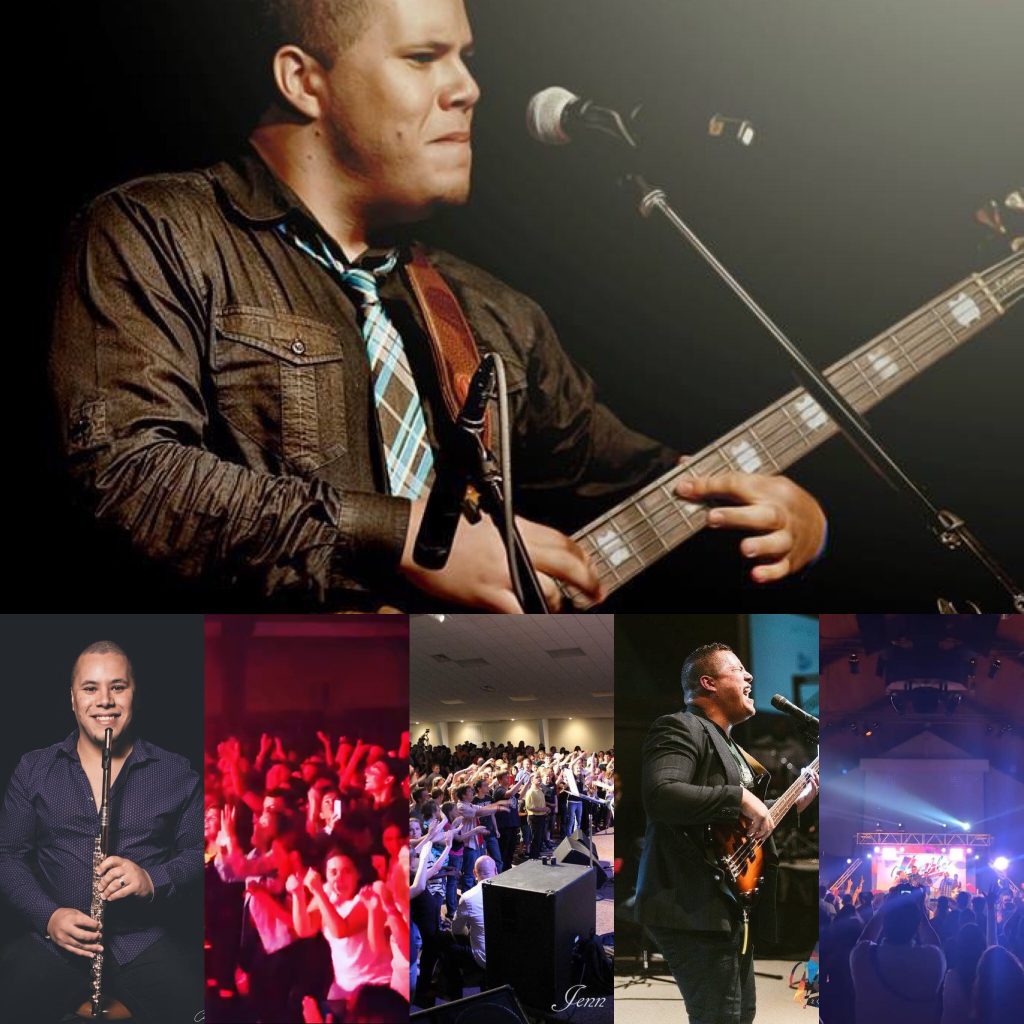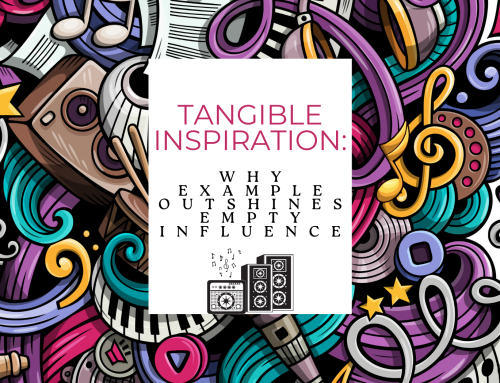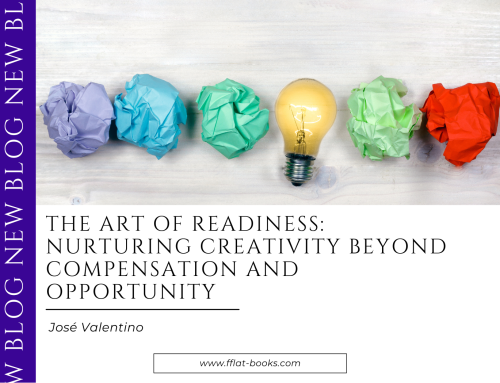Table of Contents
How To Confront Father Time as Educators
What an exciting time it is for all educators! Another fresh year with eager and gifted students who are slightly nervous and shy. Yet, they’re excitedly looking to you, the educator, to help them realize their dreams and potential through your creative tutelage and mentorship. It is indeed a glorious task we have as educators — to bring out the best in our students on a daily basis, on a weekly basis, and on a yearly basis. We all know the hard work that goes into our effectiveness and consistency to provide meaningful learning experiences for our students. Countless hours of assessment, late nights (sometimes taking the red-eye) preparing for the next topical unit, writing reports, developing and refining newfangled curriculum, attending faculty meetings, volunteering for extra-curricular activities, and so on. Good thing that being an educator is the only we have to do, right? [insert villainous laughter for 10 seconds]. Wait! What is that sound? What’s happening? Are you freaked out too? Is that . . . [panting] . . . is that . . . [panting] . . . is that Father Time? Yes, it is, my friends. And the older we get, the scarier the voice of Father Time becomes.
As Music Educators/Entrepreneurs, We Need a Solution

José Valentino in action!
Friends, one of the most arduous tasks we face as educator-entrepreneurs is balancing our finite time to express not simply what we do, but rather, who we are. We are creative professionals. Within the paradigm of the creative profession is one facet of who we are and we do, which is often dubbed the title of ‘music educator.’ However, the beauty of who we are is not limited to how many tasks and jobs we balance, but rather, it is our willingness and desire to infiltrate the power of music and learning to create opportunities for other people to grow, express, relate, fellowship, refine, love, experience, and learn through the phenomenological sonic engagements we facilitate called music. In our profession, we do this through numerous types of roles (e.g., scholarship, performance, teaching, speaking, and so forth). These multiple jobs we balance is a common attribute of an entrepreneur, which is not merely a fancy word, but a way of life that has influenced our approach to whatever we do with music.
Without empirical sources needed, I believe it is safe to say that if you are reading this article, most likely you are someone who is secure in your artistic identity, has a strong foundation for purpose, and wishes to apply some wisdom for how to express your purpose through the multiple roles you possess to exercise your mission statement, given the limited time we have in our lives. Well, below are my suggestions, for which I apply key principles for managing my time on a daily basis, and making daily efforts to improve my execution of these principles. I sincerely hope these suggestions help you, as it has improved my wellness, quality of life, mission, musicianship, and relationships with my family, friends, colleagues, and students.
1. Know When To Say ‘No’
One of the most important words in the English dictionary, or any language for the matter, is the word ‘no.’ It is a word that we learned during our earliest years of linguistic development, and yet, somehow we assume that this word is considered taboo by the time we join the workforce. If you are one of those individuals who have a difficult time saying ‘no’ to inquiries and opportunities, I encourage you to adopt this beautiful word as soon as possible before you have an emotional meltdown due to your cortisol levels skyrocketing.
I understand that most employees want to be liked, appreciated, valued, respected, and trusted among their peers. However, keep in mind that not every inquiry or opportunity is actually going to be a beneficial one in the long run; not all opportunities will advance a platform . . . some opportunities can actually digress a platform. Become accustomed to knowing that you will not lose respect or appreciation from your colleagues if you say ‘no’ or any configuration of the term. On the contrary, your colleagues will notice that you value your time, have important obligations and commitments you wish to honor, and put your physical and cognitive health first and foremost. Instead of accepting every inquiry or opportunity thrown your way, you should sincerely assess the implications of taking on a particular assignment, and think about how that task can help progress your unique role/mission for the institution or for your individual enterprise/endeavors. You can always respectfully decline an inquiry or opportunity and offer an alternative to your inquirer that will be convenient for both parties.
2. ‘Balance’ is a myth . . . ‘Ebb and Flow’ is Factual
Let’s be honest with ourselves, or even better, let’s have grace for ourselves. Friends, there will be times when you spend a whole weekend with your family, and there will be times when you have a deadline and need to work over the weekend. What actually does exist is the notion of ‘ebb and flow’ and ‘high tide and low tide.’ An actual myth is that there is a recipe for being perfectly balanced at all times. Don’t adopt the mindset of the arch-villain of the Marvel Cinematic Universe – the Titan himself, Thanos, from the movie, Avengers: Endgame – who believed that he was capable of tipping the scales of the universe into balance. Embracing that mindset can lead you into a dangerous road where you may exude less compassion, mercy, and grace towards individuals who have a harder time functioning within structural parameters. Instead, make a list of things in life that truly matter to you. If your family and friends are on that list, then spend your precious time with them. If you enjoy taking walks on a nature trail, make time to experience that relief. If you enjoy having downtime playing video games with your child or hosting a game night at your house, then do it!
We only have one life to live and you really want to be able to look back at your past and say you experienced so many enjoyable moments. The biggest regret people often have is not having spent enough time with their loved ones. Yes, those academical articles, music productions, practice sessions, gigs, assessments for your classes are all ‘super-important’ . . . but not as important as your loved ones. So, approach your time much like the movement of the dancing sea waves. Life is akin to a recurrent or rhythmical pattern of coming and going, and of decline and regrowth. Embracing the ‘ebb and flow’ mentality can potentially increase your enjoyment in everything you do and help you have a more balanced schedule! Wait . . . I just said that balance is a myth. :-)
3. Phone/Computer-Free Time
Darn that 7’’ by 3’’ rectangular know-it-all machine that has become one of the most integral tools for our functionality and survival, the smartphone [insert music: tun tun tun]. Back when I worked as a music business & music technology professor at Lee University, I was friends with the leading scholar [Dr. Luis C. Almeida] of ‘technomoderation’, a newfangled term he coined. I even produced a hip-hop single with Luis and co-wrote lyrics with an acclaimed spoken word artist, El G.Nie, that addressed the importance of turning off the technological machines before we ourselves become the machine, which is the impetus for Dr. Almeida’s peer-reviewed research. Below is a sample of the lyrics . . . Cue the Disk Jockey:
“Technomoderation, it’s an obligation. Machine replacing man, it’s an abomination. We are in desperation for relations. Don’t let machines replace homosapiens. Over-use of technology is rampant. Instead of doing good, it’s doing more damage. Bodies are present, minds are absent. Open a fire app, calling it camping. Smartphones seem to be dumbing us down. Neighbors are quiet, less talk in the town. No smiles around, our face is occupied. We use a small screen that we use to filter life.”
Now, do I hate the smartphone? Personally, not the slightest bit! Do I hate technology? No, I actually love it very much! So much so, my career at three academic institutions has been to teach music technology to students. Having produced two Grammy® Award-nominated albums and an Emmy® Award-winning film score in the comforts of my bedroom using a laptop and portable recording equipment has been nothing short of an exhilarating wonder. However, I would not be able to manage my time and roles as a traveling performer, producer, business owner, husband, father, conference speaker, professor, yadi-yadi-yadi [you get my drift because you are riding the same boat] . . . if I was stuck to the ever-addicting smartphone or computer – and really, I am speaking more about the internet.
Studies have shown that most smartphone users spend an average of 1/3 of a day looking at the screen and for some people, it is 1/2 of an entire day. So, my question to the reader is“What are you able to accomplish if you reduced your phone-time by half?” Many people have become dependent on the endorphins we feel upon receiving ‘like’ notifications on social media platforms, which makes us feel happy. It is to the point that many people have consciously and unconsciously sacrificed other goals, duties, and meaningful time with others in order to spend more time with the smartphone. My advice for anyone who is trying to balance a polymath career [and most musicians do] is to designate specific times during your day to turn off the phone and computer. In doing so, you may realize that you have more time to work towards your dreams and spend with your loved ones.
4. Clock In & Out When You NEED To Clock In & Out
Go away to work and consider setting a timer. ‘Getting away’ can free you from many distractions, helps set up an atmosphere for your mind to focus, and provides a time boundary to help keep you moving. There is a famous saying, “No place like home.” While I absolutely love being at home more than I love being at work, I am aware that many deadlines and goals will not get accomplished simply because the atmosphere in my home is set up for me to unwind and relax. Being surrounded by like-minded, passionate workers can really motive us to engage in our mission-minded tasks better. Hence, part of my plan for getting specific goals completed is by creating an itinerary for when I will be at the workplace, other than home. Maybe for you, it’s a local coffee shop. That’s great! Also, communicating with your respective friends and colleagues when you will not be available to chat is always encouraged. Then, don’t get too caught up in your work that you forget about civilization. If you are not able to finish your project in one sitting, allow yourself to be content with continuing your assignments the following days ahead. Apply quitting time by setting hours for yourself and keeping this deal with yourself. This way, you can maintain the enthusiasm towards completing a goal and not experience the ‘mental/physical burn-out’ stage.
5. Calendars Are There For A Reason
Put you and your family/friends on the calendar. Make an appointment with yourself – even if it is secretly to ‘Netflix and chill’ or to create music via personal-practice or holding a jam session with your friends. Put it on the calendar and when asked if you can have a meeting during that day/time, say no. You’re busy. No one needs to know what you’re doing, but downtime and relationship time needs boundaries set upon it to give it the same priority that your work and deadlines have. Calendars can reveal to us how we are prioritizing our time and with what activities. Do you have something looming that you don’t want to do? Set a specific day and time frame on your calendar to do that thing. Also, break larger projects into smaller steps with due dates. Put it on a shared calendar to keep yourself accountable. Keep the appointment and before you know it you’ll be done and it will be over. Remember, we protect what matters.
6. Eat & Sleep Well
Don’t skip that meal. Don’t squander your sleep. Food, sleep, and people rejuvenate and refresh us. The kinds of fuel we put into our bodies can determine how well our cognizance, nervous system, cardiovascular system, and other systems will function. Sometimes people quit too quickly, not because they are lazy, but because they experience premature exhaustion due (1) to the type of food they ate and (2) to the lack of sleep needed to feel re-energized to complete their tasks. One beneficial thing I do is to maintain accountability with a friend of mine who works just as hard. We usually call each other every other day to encourage one another and to remind ourselves “. . . how fragile we are!” (referencing Sting, the singer). Despite what we may think, we are not superhuman and are not only entitled to good food and sufficient sleep but are in need of those variables in order for us to function at an optimal level. So, eat and sleep well.
7. Apply the Nike Slogan
“Just Do It” is the official slogan for the athletic sportswear brand, Nike. It is the go-getter mentality. Quite frankly, many professionals have dreams but do not set goals or deadlines. The end result generally tends to be their dreams will fail them. Courage is a character-trait we must apply in order to witness the fruits of our labor. Sometimes, people express their fears far-too-often because they are afraid to fail. Let’s just get this out of the way – failure is not a bad word. Failure can be viewed as a tool or a compass that gives people a clearer direction for how, why, and where to go to actualize their potential endeavors. Academic researchers find the value of pilot testing studies before commencing the actual study. Marketers value product/market-fit testing content in order to produce the best results.
We as musicians and educators should also value the principle of ‘trial and error’ for our ideations. The world-renowned talk show host, Steve Harvey, has talked about the importance of ‘jumping’ into our goals with courage. The Chinese philosopher, Lao Tsu, wrote, “The journey of a thousand miles begins with a single step (Chinese: 千里之行,始於足下).” Hence, it is apparent that there is great wisdom in doing the work you intend to do with confidence (Latin: Confidere, which means to have full trust) and hope, and to just dive in without questions. Just do, then learn. That is improvisation. That is life. Without courage, failure, confidence, and hope, it will be difficult for anyone to manage their time in an effective manner that can facilitate progressional development for actualizing intended aspirations.
So What ?
My hope is that you won’t be so afraid of Father Time’s voice now. The truth is you should have too many big dreams and goals. Goals can be viewed as dreams with a deadline. You should outlive your ability to accomplish your dreams. Make your dreams so gargantuan, that it would literally take an army of qualified helpers to make that dream a reality. You do have time, so make the most of it. Remember that the word ‘no’ is your friend. Remember that balance does not exist, but ebb and flow do exist. Clock in and out when you need to so you can remain optimal in health and in mind. Utilize the calendar to help obtain a meta-view of how you prioritize your time. Eat and sleep well, for doing those two things will also improve your functionality. And most of all, just do it. “Getter’ done.” It would be selfish of you not to embark and execute your amazing dreams and goals. Don’t be afraid to fail, for failure is the ‘mother of success.’ Have confidence in your ability to achieve your dreams. After all, your dreams are not meant for you – they are meant to improve the lives of others. So, what are you waiting for? Time is ticking.




[…] other big take-away was the importance of priorities. José Valentino Ruiz talked about this in his Back to School post as well—we can’t have it all! Yes, we could spend every ounce of our time in our school […]
[…] This article first appeared on the F-Flat Magazine blog. […]